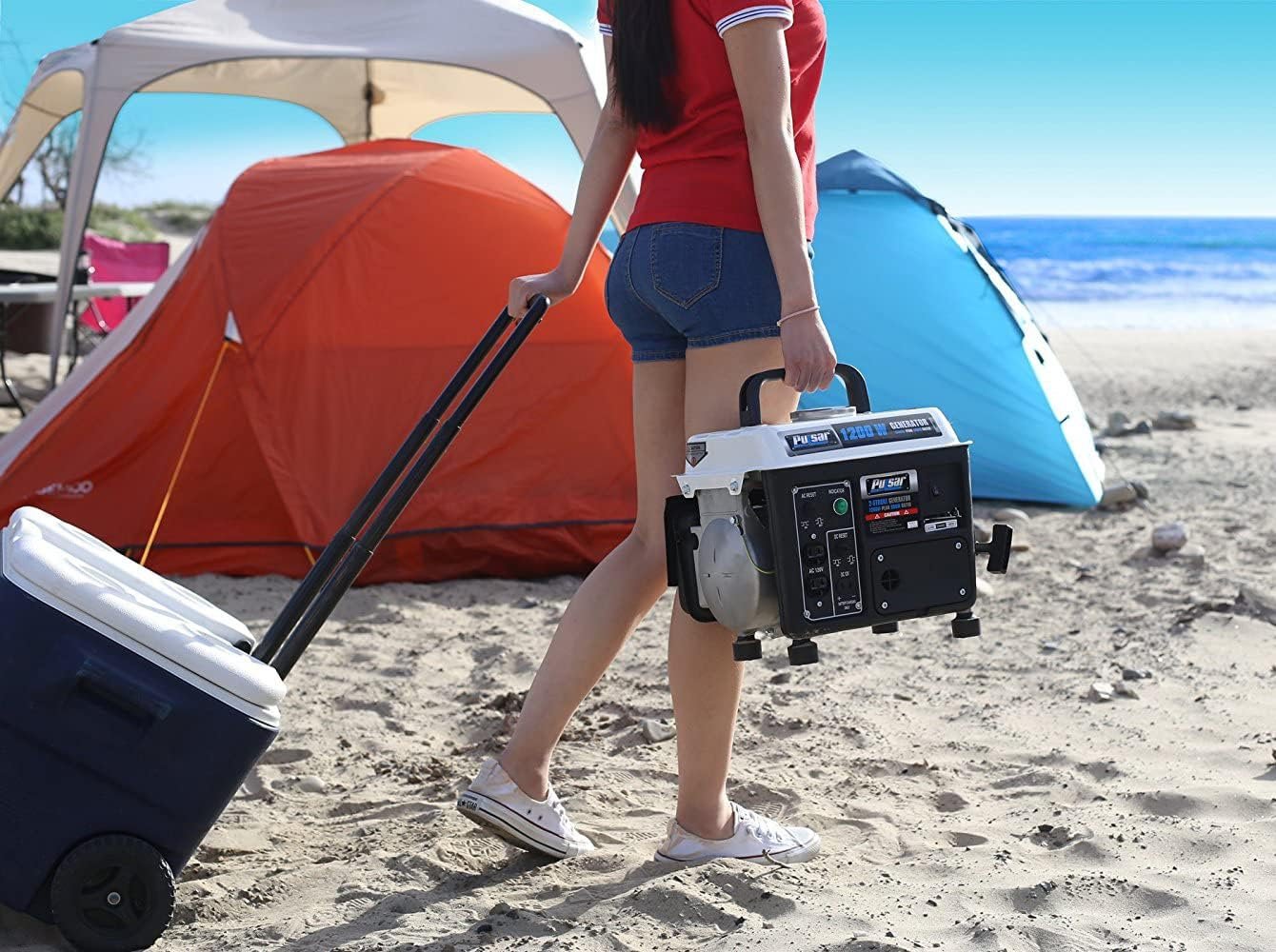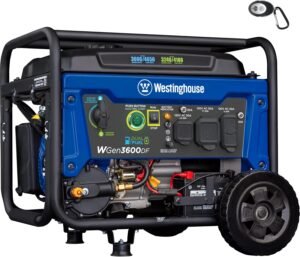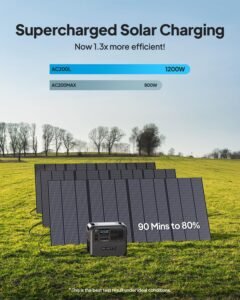Tips on Buying the Right Generator: Gas vs. Solar Power
Have you ever found yourself in a situation where the power goes out, and you wish you had a reliable backup generator? Choosing the right generator is an important decision, especially with so many options available on the market today. You may find yourself torn between gas-powered generators and solar-powered ones. Both options come with their distinct advantages and challenges, making it essential to understand them thoroughly.
Understanding Generator Types
When it comes to generators, you generally have two primary types: gas and solar. Both types have unique characteristics that make them suitable for different situations.
Gas-Powered Generators
Gas-powered generators are the most common type you’ll find. They run on gasoline or propane and are available in various sizes and power outputs.
Pros of Gas-Powered Generators
- Immediate Energy Source: As soon as you fill the tank and start the generator, it provides power. There’s no waiting for the sun to shine or for batteries to charge.
- High Power Output: Gas generators can produce a significant amount of power, making them suitable for powering multiple appliances or even an entire home during an outage.
- Lower Initial Costs: In many cases, gas-powered generators are less expensive upfront compared to solar-powered systems. This can be an appealing factor if you’re working within a tight budget.
Cons of Gas-Powered Generators
- Fuel Dependence: You’ll need a constant fuel supply, which can become costly during extended power outages.
- Emissions: Gas generators produce harmful emissions, making them less environmentally friendly compared to solar options.
- Noise: Many gas generators can be quite loud, making them less desirable if noise is a concern.
Solar-Powered Generators
Solar generators harness energy from the sun, converting it into electricity. These systems use solar panels and battery storage to provide power.
Pros of Solar-Powered Generators
- Renewable Energy Source: Solar energy is abundant and renewable, offering a cleaner alternative to fossil fuels.
- Low Operating Costs: Once you’ve invested in solar panels and a storage system, your operational costs can be very low or even negligible since sunlight is free.
- Quiet Operation: These generators operate silently, allowing you to enjoy a peaceful environment even during power outages.
Cons of Solar-Powered Generators
- Initial Investment: While prices for solar systems are decreasing, the upfront costs can still be higher compared to gas generators.
- Sun Dependency: Solar generators require sunlight to operate efficiently. On cloudy or rainy days, their performance can be significantly diminished.
- Limited Power Output: Depending on the system you select, a solar generator might have lower power output than a gas generator, which could limit what you can power during an outage.
Assessing Your Power Needs
Before deciding on a generator, you need to assess your power needs. This evaluation will guide you in choosing a generator that meets your requirements effectively.
Determining Wattage Requirements
To determine your wattage needs, consider the devices and appliances you plan to run during a power outage. Here’s a simple approach:
- List Essential Appliances: Write down all the appliances you want to power. This may include refrigerators, lights, heating or cooling systems, and medical devices.
- Check Wattage Ratings: Look at the wattage ratings of these devices, usually found on labels or in user manuals.
- Calculate Total Wattage: Sum the total wattage to understand what you’ll need from your generator.
Starting vs. Running Watts
Another important concept is the difference between starting watts and running watts.
- Starting Watts: This is the power needed to start appliances, which can be considerably higher (around 2-3 times) than their running watts. For instance, a refrigerator may require 800 watts to run but needs 1,600 watts at startup.
- Running Watts: This is the power required to keep the appliance running after it has started.
Make sure you account for the starting watts in your total wattage requirements to avoid any surprises during a power outage.
Evaluating Costs
Cost should be a significant factor in your decision-making process. It’s important to account for both initial costs and long-term expenses.
Initial Costs of Gas vs. Solar Generators
| Type | Initial Cost Estimate |
|---|---|
| Gas-Powered | $300 – $5,000 |
| Solar-Powered | $2,000 – $10,000+ |
As seen in the table above, gas-powered generators are generally more affordable upfront. However, solar-powered systems can offer savings in the long run due to lower operating costs.
Long-Term Costs
- Gas Generators: Consider the cost of gasoline or propane that you’ll need to keep your generator running. Additionally, maintenance costs can accumulate over time.
- Solar Generators: Although the initial investment may be higher, the absence of fuel costs and minimal maintenance can make solar generators more cost-effective over time.
Maintenance Considerations
Regardless of the type of generator you choose, maintenance is key to ensuring longevity and performance.
Maintenance for Gas-Powered Generators
- Regularly Check the Oil: Just like any vehicle, gas generators need their oil checked and changed periodically.
- Fuel Quality: Make sure to use fresh fuel and consider adding fuel stabilizers for prolonged storage.
- Cleaning: Keep the generator clean and make sure it’s free from debris to prevent overheating.
Maintenance for Solar-Powered Generators
- Solar Panel Care: Keep panels clean from dirt and debris to optimize energy collection.
- Battery Maintenance: Regularly check battery health and performance, as batteries may need replacement after a certain number of charge cycles.
- System Checks: Inspect the entire system periodically for any wear and tear or potential failures.
Environmental Impact
Many people are becoming increasingly conscious of their environmental footprint.
Gas Generators and Emissions
Gas-powered generators emit carbon dioxide and other pollutants, contributing to greenhouse gases. While they serve as a reliable power source, you may want to consider how this aligns with your values and environmental commitments.
Solar Generators and Sustainability
Solar-powered systems, on the other hand, utilize clean energy. By choosing solar, you’re reducing your dependence on fossil fuels and contributing positively to the environment. It’s a choice that resonates well with those aiming to live a more sustainable lifestyle.
Application and Portability
The use cases for your generator are also important to consider.
Gas Generators for Heavy-Duty Tasks
Gas-powered generators can handle heavy-duty requirements. If you’re planning to power large appliances, tools for construction work, or use them for recreational purposes like camping, a gas generator may be the right choice.
Solar Generators for Light Use
If you plan on using a generator for lighter tasks—such as charging devices, running lights, or small appliances—a solar generator can be a perfect fit. Plus, many solar systems are portable, making them easy to transport for outdoor activities.
Conclusion: Making the Right Choice
Selecting between a gas-powered and a solar-powered generator boils down to your specific needs and circumstances.
- If you’re looking for immediate power and high output, a gas generator might be your best choice.
- On the other hand, if sustainability and low operational costs speak to you, a solar-powered generator could be the perfect fit.
Take your time to evaluate what matters most to you, from initial expenses and long-term costs to environmental impacts and power needs. You’re making not just a purchase, but an investment in peace of mind during unexpected power outages.
By weighing all these factors, you will be well-equipped to make a choice that suits your lifestyle and makes you feel confident during power interruptions. Happy generator shopping!



